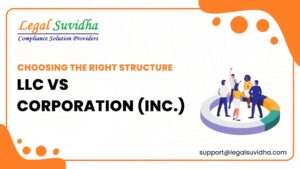Types of Valuation: A Comprehensive Overview
Valuation methods vary depending on the stage of the company, the industry, and the purpose of the valuation. Broadly, valuation can be categorized into quantitative (based on financial data and models) and qualitative (based on subjective or intangible factors). Below are the major types of valuation methods:
1. Asset-Based Valuation
This method determines the value of a company based on its assets.
- Net Asset Value (NAV):
- Calculates the total value of a company’s tangible and intangible assets minus its liabilities.
- Suitable for asset-heavy businesses like manufacturing or real estate.
- Formula: NAV = (Tangible Assets + Intangible Assets) – Liabilities
- Liquidation Value:
- Determines how much the company’s assets would fetch if sold today.
- Often used in distressed or insolvency scenarios.
2. Market-Based Valuation
This method compares the company with similar businesses in the market.
- Comparable Company Analysis (CCA):
- Compares the company’s metrics (like revenue, EBITDA, or user base) with peer companies.
- Example: If similar companies in the same industry are valued at 5x revenue, your company might be valued similarly.
- Precedent Transactions:
- Looks at valuations of similar businesses in past acquisitions or funding rounds.
- Example: If a similar startup was acquired for $50 million, that transaction sets a benchmark.
3. Income-Based Valuation
This approach values a business based on its ability to generate future income.
- Discounted Cash Flow (DCF):
- Calculates the present value of future cash flows, discounted at a rate that reflects risk.
- Most commonly used for established startups with predictable cash flows.
- Formula: DCF = Σ(Future Cash Flows / (1 + r)t)
- Where r = discount rate, t = time period.
- Capitalization of Earnings:
- Values the company based on its expected earnings and a capitalization rate.
- Works well for businesses with steady profits.
- Formula: Value = Annual Earnings / Capitalization Rate
4. Startup-Specific Valuation
Since startups often lack steady revenues or assets, unique methods are used:
- Berkus Method:
- Assigns a dollar value to various risk-reduction factors (e.g., product development, market readiness, team strength).
- Used for early-stage startups.
- Scorecard Method:
- Compares the startup to a standard profile of successful startups.
- Adjustments are made based on team, market, and product quality.
- Venture Capital Method (VC Method):
- Estimates the exit value of the startup and works backward to determine the current value.
- Formula: Pre-Money Valuation = (Exit Value / (1 + Target Return)n) – Investment Amount
- Where n = number of years to exit.
5. Revenue Multiples Valuation
This method uses a multiple of the company’s current or projected revenue.
- Formula: Value = Revenue × Industry Multiple
- Example: SaaS startups are often valued at 10-15x ARR (Annual Recurring Revenue).
6. Intangible Asset Valuation
Focuses on non-physical assets like intellectual property (IP), brand value, or patents.
- Relief from Royalty Method: Values the IP based on the royalties it could generate if licensed.
- Cost to Recreate: Determines how much it would cost to recreate the intangible asset.
7. Hybrid Valuation Methods
Combines multiple approaches for more nuanced results.
- Weighted Average Method: Assigns weights to different methods (e.g., 40% DCF, 30% Comparable Companies, 30% Precedent Transactions).
Choosing the Right Valuation Method
The ideal method depends on:
- Stage of Business:
- Early-stage startups may rely on qualitative methods (e.g., Berkus or Scorecard).
- Growth-stage startups often use DCF or revenue multiples.
- Industry Type:
- Asset-heavy industries may prefer NAV.
- Tech startups often use revenue multiples or VC Method.
- Purpose:
- Fundraising, M&A, tax reporting, or internal decision-making may require different approaches.
Ready to Get Your Startup Valued?
Get expert guidance on determining your startup’s worth and attracting the right investors!
Contact Us Today:
+91 95999 37963, +91 81306 45164, +91 96500 02140, +91 9667744527
📧 Email Us: [email protected]




















